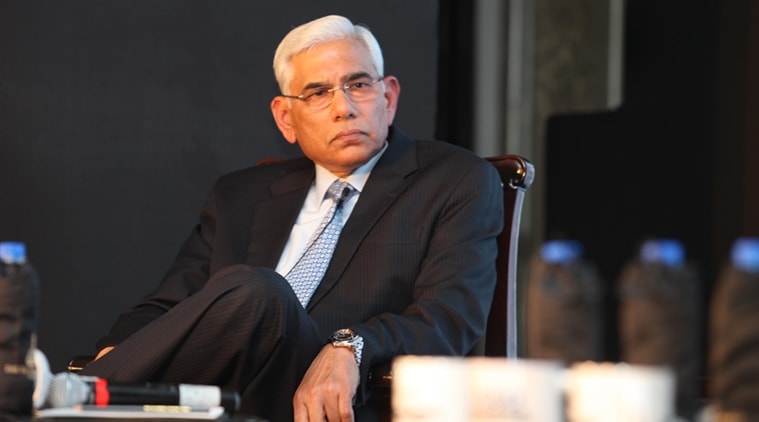 Vinod Rai believes the lack of proper checks and balances has led many to question the sanctity of the upcoming DDCA elections. (Source: File Photo)
Vinod Rai believes the lack of proper checks and balances has led many to question the sanctity of the upcoming DDCA elections. (Source: File Photo)
The chairman of BCCI’s Committee of Administrators Vinod Rai and the man whose recommendations on cricket’s structural changes framed the Supreme Court’s order, Justice RM Lodha, have pointed to the overwhelming whiff of ‘conflict of interest’ surrounding this week’s Delhi and District Cricket Association elections.
With a number of wives and sons of disqualified administrators and present office-bearers in fray, there’s also a legal view that points to the possibility of the June 30 elections getting either stayed or even annulled at a later date.
While both Rai and Justice Lodha clarify that there was no law that disallows the candidature of DDCA members who have family ties with influential office-bearers, it certainly wasn’t the best election practice.
“There is nothing wrong legally but there is an ethical content in the entire thing,” says Rai. Lodha, meanwhile, blames the “kith kin’ elections to the non-implementation of the Supreme Court order on cricket reforms. “These problems will crop up because reforms have not been put in place firstly in letter and not at all in spirit,” says the former Chief Justice of India.
Rai explains how in a ‘reformed’ cricket body it would be very difficult for relatives of administrators with corruption charges against them to file election nomination. “There are very strict conflict-of-interest norms laid down by the Lodha committee. The ombudsman and an ethical officer (two appointments the Lodha report has forced on cricket bodies) ensure that conflict-of-interest norms are not attracted adversely.”
It’s the lack of these checks and balances that has made many to question the sanctity of these elections.
A senior BCCI official involved with the case in the Supreme Court says that DDCA shouldn’t have gone ahead with elections at this stage. “On July 5, the Supreme Court is hearing the BCCI case and that’s when there will be a discussion on the new BCCI constitution. Once that is finalised, every state unit will have a constitution that will mirror the one the BCCI follows. Only then will there be proper regulation in place. There are chances that the court will intervene but even if it doesn’t, there can also be a scenario where those elected are disqualified once Lodha reforms are implemented in entirety,” he says.
Rai also says that the “ethical content can be addressed by the courts or by members themselves”. He prefers members taking the lead. “Ideally, the members themselves should address the issue by consensus among themselves. If they don’t, it will get addressed soon once the ombudsman and ethical officer are in place.” Lodha says he is disappointed at seeing the list of candidates for the first cricket elections after the Supreme Court order. “The problem is the mindset of the officer-bearers. They continue to treat DDCA as their fiefdom. It will take one or two elections before actual churning takes place,” he says.
To stress his point, he takes one back in time when the constitution was amended to have women sarpanchs in 50 per cent of villages. “The male folk who were earlier sarpanchs stepped down but their wives and daughters got elected. And through this arrangement, the male sarpanchs continued to rule. But after a period of time, the women took charge. With time, things will change in DDCA. They just can’t accept that they are no longer in control.”
Justice Lodha also didn’t endorse the idea of individual members making up the entire DDCA electorate.
The present DDCA constitution has about 4,000 members and for years, their votes were controlled by long-standing powerful members.
The upcoming election under the watch of High Court-appointed administrator Justice Vikramjit Sen doesn’t allow members to vote on behalf of others. However, the proxy system hasn’t been truly abolished. It is evident that the old guard has plans in place to rule by proxy.
Former DDCA vice-president CK Khanna’s wife Shashi and brother of DDCA president Sneh Bansal — who had corruption charges against him — Rakesh are two of the prominent candidates among the 10 with family ties with former office-bearers.
“In our discussions, there was some thought but we didn’t concretise it in our report. I do feel over a period of time, it will be better that clubs or institutions remain the voting members of the association and that will bring a different sports culture all together. I think we have mentioned that individuals can be members of the social club but don’t have a vote. It is easy to capture the vote bank of individuals. This you can capture and certain section will be with you always,” Lodha said.